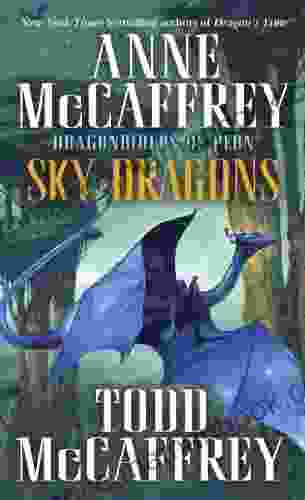The Catiline War: A Challenge to the Roman Republic

The Catiline War was a civil war in the Roman Republic that took place from 63 to 62 BC. The war was fought between the Optimates, led by Cicero, and the Populares, led by Catiline. The Optimates emerged victorious, and Catiline was killed in battle.
5 out of 5
| Language | : | English |
| File size | : | 762 KB |
| Text-to-Speech | : | Enabled |
| Screen Reader | : | Supported |
| Enhanced typesetting | : | Enabled |
| Print length | : | 690 pages |
| Lending | : | Enabled |
Background
The Catiline War was the culmination of a series of events that had been brewing in the Roman Republic for several years. The Republic was in a state of decline, and the government was becoming increasingly corrupt and ineffective. This led to a growing sense of dissatisfaction among the people, and many began to look for a leader who could restore order and stability to the Republic.
In 66 BC, a young aristocrat named Lucius Sergius Catilina was elected to the consulship. Catiline was a charismatic and ambitious man, and he quickly gained a following among the disaffected elements of the population. Catiline promised to restore order and stability to the Republic, and he vowed to crack down on corruption and injustice.
The Conspiracy
In 63 BC, Catiline formed a conspiracy to overthrow the government. He recruited a group of followers, including many young aristocrats and military veterans. The conspirators planned to assassinate the consuls and seize control of the city of Rome.
Cicero, who was one of the consuls, got wind of the conspiracy and took steps to thwart it. He had Catiline arrested and charged with treason. Catiline was acquitted, but Cicero continued to investigate the conspiracy.
The War
In 62 BC, Catiline and his followers fled Rome and raised an army in Etruria. Cicero declared war on Catiline, and the two armies met in battle at the Battle of Pistoria. The Optimates emerged victorious, and Catiline was killed in battle.
Aftermath
The Catiline War was a major turning point in the history of the Roman Republic. The war showed that the Republic was no longer able to maintain its own stability and that it was increasingly vulnerable to internal and external threats.
The war also led to the rise of Julius Caesar, who would later become the first emperor of Rome. Caesar was a young military commander who played a key role in the defeat of Catiline. After the war, Caesar became increasingly popular, and he eventually seized power in 49 BC.
Legacy
The Catiline War is still studied today as a case study in the decline of a republic. The war showed that a republic can only survive if its citizens are willing to defend it and that it is vulnerable to demagogues who promise to restore order and stability but who are ultimately only interested in their own power.
The Catiline War was a major event in the history of the Roman Republic. The war showed that the Republic was no longer able to maintain its own stability and that it was increasingly vulnerable to internal and external threats. The war also led to the rise of Julius Caesar, who would later become the first emperor of Rome.
5 out of 5
| Language | : | English |
| File size | : | 762 KB |
| Text-to-Speech | : | Enabled |
| Screen Reader | : | Supported |
| Enhanced typesetting | : | Enabled |
| Print length | : | 690 pages |
| Lending | : | Enabled |
Do you want to contribute by writing guest posts on this blog?
Please contact us and send us a resume of previous articles that you have written.
 Top Book
Top Book Novel
Novel Fiction
Fiction Nonfiction
Nonfiction Literature
Literature Paperback
Paperback Hardcover
Hardcover E-book
E-book Audiobook
Audiobook Bestseller
Bestseller Classic
Classic Mystery
Mystery Thriller
Thriller Romance
Romance Fantasy
Fantasy Science Fiction
Science Fiction Biography
Biography Memoir
Memoir Autobiography
Autobiography Poetry
Poetry Drama
Drama Historical Fiction
Historical Fiction Self-help
Self-help Young Adult
Young Adult Childrens Books
Childrens Books Graphic Novel
Graphic Novel Anthology
Anthology Series
Series Encyclopedia
Encyclopedia Reference
Reference Guidebook
Guidebook Textbook
Textbook Workbook
Workbook Journal
Journal Diary
Diary Manuscript
Manuscript Folio
Folio Pulp Fiction
Pulp Fiction Short Stories
Short Stories Fairy Tales
Fairy Tales Fables
Fables Mythology
Mythology Philosophy
Philosophy Religion
Religion Spirituality
Spirituality Essays
Essays Critique
Critique Commentary
Commentary Glossary
Glossary Bibliography
Bibliography Index
Index Table of Contents
Table of Contents Preface
Preface Introduction
Introduction Foreword
Foreword Afterword
Afterword Appendices
Appendices Annotations
Annotations Footnotes
Footnotes Epilogue
Epilogue Prologue
Prologue Anne Brooksbank
Anne Brooksbank Kindle Edition
Kindle Edition Timothy Dorr
Timothy Dorr Gloria Daniels
Gloria Daniels Mike Freeman
Mike Freeman Good Housekeeping
Good Housekeeping William Rowley
William Rowley Dale Earnhardt Jr
Dale Earnhardt Jr Emily Dickinson
Emily Dickinson Lizzie Lane
Lizzie Lane Toyin Sebastien Ajimati
Toyin Sebastien Ajimati Jessica Roux
Jessica Roux Richard English
Richard English Zoltan Keseru
Zoltan Keseru William C Dietz
William C Dietz Avishek Gupta
Avishek Gupta John James
John James Jeffrey Poole
Jeffrey Poole Emma Mak
Emma Mak Hannah Dela Cruz
Hannah Dela Cruz
Light bulbAdvertise smarter! Our strategic ad space ensures maximum exposure. Reserve your spot today!
 Rubén DaríoFollow ·9.1k
Rubén DaríoFollow ·9.1k Roald DahlFollow ·14.8k
Roald DahlFollow ·14.8k Aron CoxFollow ·10.1k
Aron CoxFollow ·10.1k Diego BlairFollow ·12.1k
Diego BlairFollow ·12.1k Jake CarterFollow ·6.4k
Jake CarterFollow ·6.4k Pablo NerudaFollow ·14.5k
Pablo NerudaFollow ·14.5k Javier BellFollow ·14.6k
Javier BellFollow ·14.6k Aldous HuxleyFollow ·13.6k
Aldous HuxleyFollow ·13.6k

 Jared Nelson
Jared NelsonThe Da Vinci Code: A Literary Odyssey into the World of...
A captivating image of The Da Vinci Code...

 Harvey Bell
Harvey BellJohn Pearce: An Action-Packed Maritime Adventure
Join John...

 Ken Follett
Ken FollettSky Dragons: Unveiling the Majestic Creatures from the...
In the ethereal world of Anne McCaffrey's...

 Blake Bell
Blake BellEasy And Delicious Baking Recipes You Can Effortlessly...
Baking can be a great way to relax and...

 Maurice Parker
Maurice ParkerUnveiling the Profound Insights and Lyrical Beauty of...
In the realm of contemporary poetry, "Growl...
5 out of 5
| Language | : | English |
| File size | : | 762 KB |
| Text-to-Speech | : | Enabled |
| Screen Reader | : | Supported |
| Enhanced typesetting | : | Enabled |
| Print length | : | 690 pages |
| Lending | : | Enabled |














